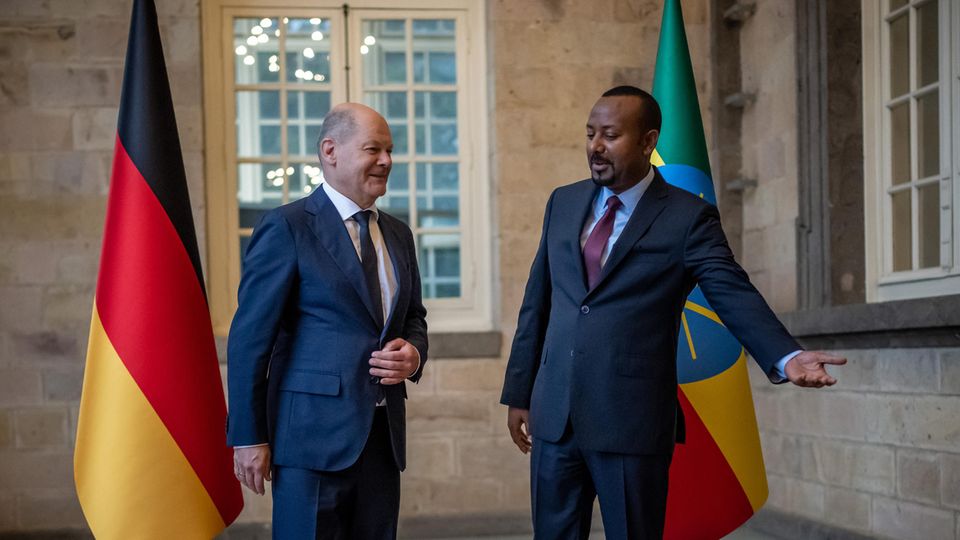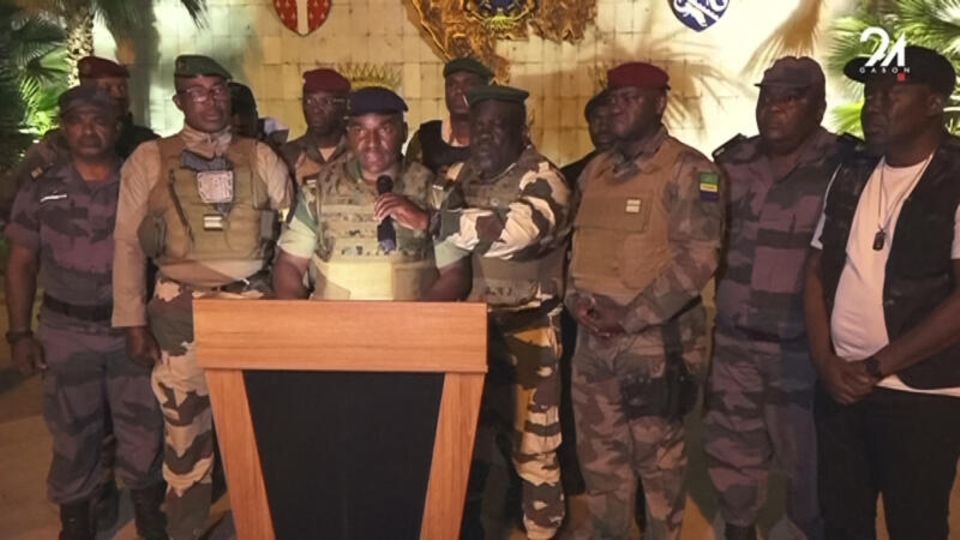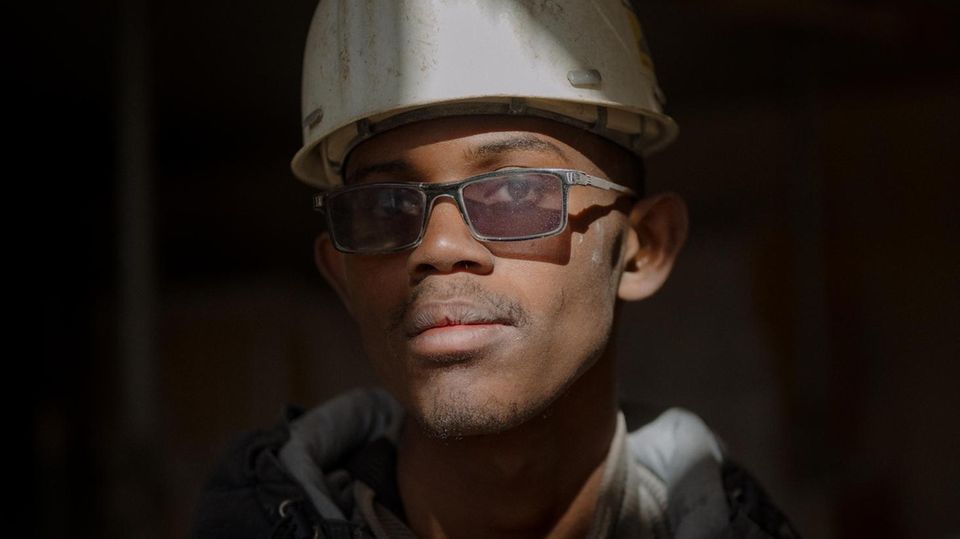Gabon’s President Ali Bongo Ondimba was overthrown by the military after his controversial re-election. This ends a clan rule that lasted more than 50 years, leaving behind a rich family and a poor people.
The military in Gabon seized power in the Central African country a few days after the controversial re-election of President Ali Bongo Ondimba. An army officer, flanked by a group of eleven men, announced on Wednesday on the Gabon 24 broadcaster that the vote was falsified and the results would be annulled. All state institutions were dissolved with immediate effect and the borders were closed.
The putschists, who presented themselves as the “Committee for Transition and Institutional Restoration (CTRI)”, justified their coup with the “serious institutional, political, economic and social crisis” in the country. The group, which included members of the Republican Guard — an elite unit of the president — as well as regular army soldiers and police officers, said it had decided to “put an end to the current regime.”
Bongo clan in power for more than half a century
The regime of which the subversives spoke is embodied in the Bongo family and their minions. The clan has ruled Gabon for 56 years and controls the courts and the regional and local governments through the Parti Démocratique Gabonais (PDG). Ali Bongo Ondimba, 64, became head of state in 2009 after the death of his father Omar. He had founded the PDG and became president in 1967 and ruled the country for 41 years and 193 days.
The bongos secured their decades of power by preventing free and fair elections – opposition parties have only been allowed since 1990 – constitutional changes, nepotism and corruption. Before he became president, Ali Bongo Ondimba was Foreign Minister (1989-1991), Defense Minister (1999-2009) and a member of the National Assembly (1990-2009) under his father.
The constitutional term limits were abolished in 2003, allowing Ali Bongo to serve as president for life. Also in 2003, the traditional two ballots were dropped and replaced by one ballot. This prevented Bongo’s opponents from rallying around a single challenger in a runoff. In April 2023, parliament also voted to shorten the term of office of the president from seven to five years, so that presidential, parliamentary and local elections can be held simultaneously.
“In the past, after the presidential elections, opposition parties organized against the PDG to win seats in the general and local elections. The change makes it much more likely that all institutions of governing power will be taken over by Bongo and his party in a single election “, writes Douglas Yates, Professor of Political Science and African Politics at the American Graduate School in Paris, in the online portal “The Conversation”.
educational opportunities
Africa is not synonymous with low education
Yates calls Gabon a “dynastic republic” in which presidents have established a personal system of rule and delegate power to their families and relatives through nepotism. “The only other republic where we see something like this is North Korea with Kim Jong Un,” the Africa expert told French broadcaster France 24. “In the ruling party, everyone is dependent on Bongo winning. Because if this family of should power be ousted, the rest will also lose their power.”
A large part of the inhabitants of Gabon live in poverty
Their permanent rule has made the bongos rich – and the people poor. The family has long been accused of embezzling funds on a large scale. She is reportedly one of the richest in the world, has a private fleet of planes, several luxury cars and is said to own dozens of residences in France worth millions of euros, according to the non-governmental organization Transparency International. By some estimates, Ali Bongo personally controls $1 billion in assets, much of which is said to be hidden abroad.
According to Transparency International, Gabon is one of the most corrupt countries in the world. In 2008, the organization filed a civil suit alleging misappropriation of public funds against Omar Bongo and his clan after they bought “very important assets” in France. “Given the large amounts of real estate acquired by these ruling families, it is likely that the properties were not acquired thanks to their own official salaries,” Transparency International said at the time. However, the investigation ended without a result.
In contrast to the bongos, a large proportion of Gabon’s 2.3 million inhabitants live in poverty. The sparsely populated country on the Atlantic coast, which is about three quarters the size of Germany, is so rich in raw materials that it was once referred to as the “Kuwait of Africa”. Mainly thanks to its oil and manganese deposits, Gabon has recorded strong economic growth over the past ten years – with an interruption due to the effects of the corona pandemic. With a per capita income of at least 13,949.16 US dollars, it is even one of the richest countries in sub-Saharan Africa. In neighboring Cameroon, per capita income is just US$3,733.
But the numbers are deceptive, because wealth is very unequally distributed. One in three people in Gabon lives in extreme poverty. Youth unemployment is around 37 percent. For years, the former French colony has been a destination for job-seekers from Cameroon, Nigeria and Senegal. But many of the immigrants also live in poor conditions.
The Gabonese are also being burdened by the Russian invasion of Ukraine, which has been causing the cost of living and especially food prices to rise since the beginning of 2022. Other major problems in the country are human trafficking and child labor in mining and agriculture.
“Gabon has a rich ecosystem with extensive resources of fertile land, coastal resources and fisheries,” writes the World Bank about the state, whose territory is 88 percent forested. “But despite its economic potential, the country is struggling to translate its resource wealth into sustainable and inclusive growth.”
Sources: The World Bank, “The Conversation”, France 24, Transparency International, Federal Agency for Civic Education,




